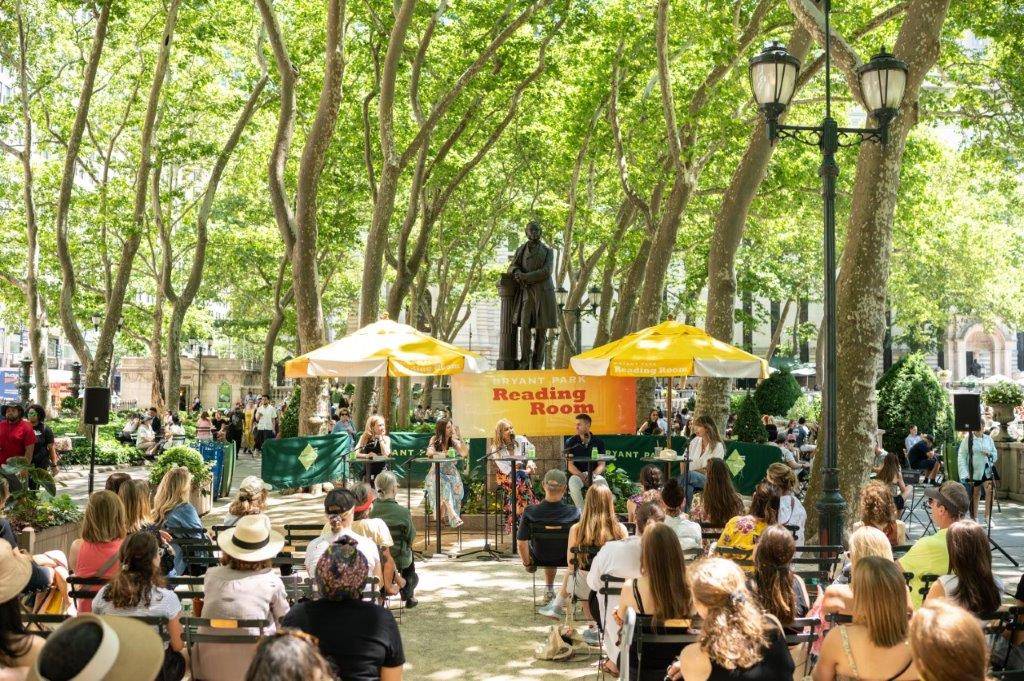Talks on movies, the culture of cinema, and filmmaking.
We Tell Ourselves Stories: Joan Didion and the American Dream Machine
Most Anticipated Books of 2025 • Washington Post, Los Angeles Times, W Magazine, The Millions
Best Books of Spring 2025 • Oprah Daily, Town & Country
Joan Didion opened The White Album (1979) with what would become one of the most iconic lines in American literature: “We tell ourselves stories in order to live.” Today, this phrase is deployed inspirationally, printed on T-shirts and posters, used as a battle cry for artists and writers. In truth, Didion was describing something much less rosy: our human tendency to manufacture delusions that might ward away our anxieties when society seems to spin off its axis. Nowhere was this collective hallucination more effectively crafted than in Hollywood.
In this riveting cultural biography, New York Times film critic Alissa Wilkinson examines Joan Didion’s influence through the lens of American mythmaking. As a young girl, Didion was infatuated with John Wayne and his on-screen bravado, and was fascinated by her California pioneer ancestry and the infamous Donner Party. The mythos that preoccupied her early years continued to influence her work as a magazine writer and film critic in New York, offering glimmers of the many stories Didion told herself that would come to unravel over the course of her career. But out west, show business beckoned.
We Tell Ourselves Stories eloquently traces Didion’s journey from New York to her arrival in Hollywood as a screenwriter at the twilight of the old studio system. She spent much of her adult life deeply embroiled in the glitz and glamor of the Los Angeles elite, where she acutely observed―and denounced―how the nation’s fears and dreams were sensationalized on screen. Meanwhile, she paid the bills writing movie scripts like A Star Is Born, while her books propelled her to celestial heights of fame.
Peering through a scrim of celluloid, Wilkinson incisively dissects the cinematic motifs and machinations that informed Didion’s writing―and how her writing, ultimately, demonstrated Hollywood’s addictive grasp on the American imagination. More than a portrait of a writer, We Tell Ourselves Stories shines a new light on a legacy whose impact will be felt for generations.
Alissa Wilkinson is a film critic at The New York Times and was formerly a senior correspondent and critic at Vox. Her previous book, Salty: Lessons on Eating, Drinking, and Living from Revolutionary Women, was published in 2022. She lives in Brooklyn, New York.
Hosted by:
Scott Adlerberg is the author of the novels Spiders and Flies, Jungle Horses, Graveyard Love, Jack Waters, and The Screaming Child. He has written many short stories and contributes pieces regularly to sites such as CrimeReads, Mystery Tribune, and Criminal Element. Every summer, he hosts the Reel Talks film commentary series in Bryant Park in Manhattan. He was born in New York City and lives in Brooklyn.
June 9
J. Hoberman, Duck Soup
June 16:
Philip Gefter, Cocktails with George and Martha: Movies, Marriage, and the Making of Who's Afraid of Virginia Woolf?
June 23
Carrie Courogen, Miss May Does Not Exist: The Life and Work of Elaine May, Hollywood's Hidden Genius
June 30
Discussion on Movies Set in the World of Books with Tobias Carroll
July 7
Shawn Levy, CLINT: The Man and the Movies
July 14
Chris Alexander, Art! Trash! Terror!: Adventures in Strange Cinema
July 21
Odie Henderson, Black Caesars and Foxy Cleopatras: A History of Blaxploitation Cinema
July 28
Alissa Wilkinson, We Tell Ourselves Stories: Joan Didion and the American Dream Machine
August 4
David M. Stewart, There's No Going Back: The Life and Work of Jonathan Demme
August 11
Dave Karger, 50 Oscar Nights: Iconic Stars & Filmmakers on Their Career-Defining Wins
August 18
Samm Deighan, Revolution in 35mm: Political Violence and Resistance in Cinema from the Arthouse to the Grindhouse, 1960-1990









_-1200x800.jpg)
